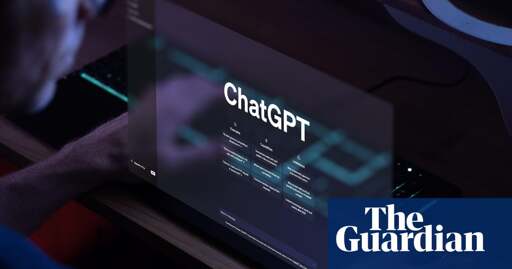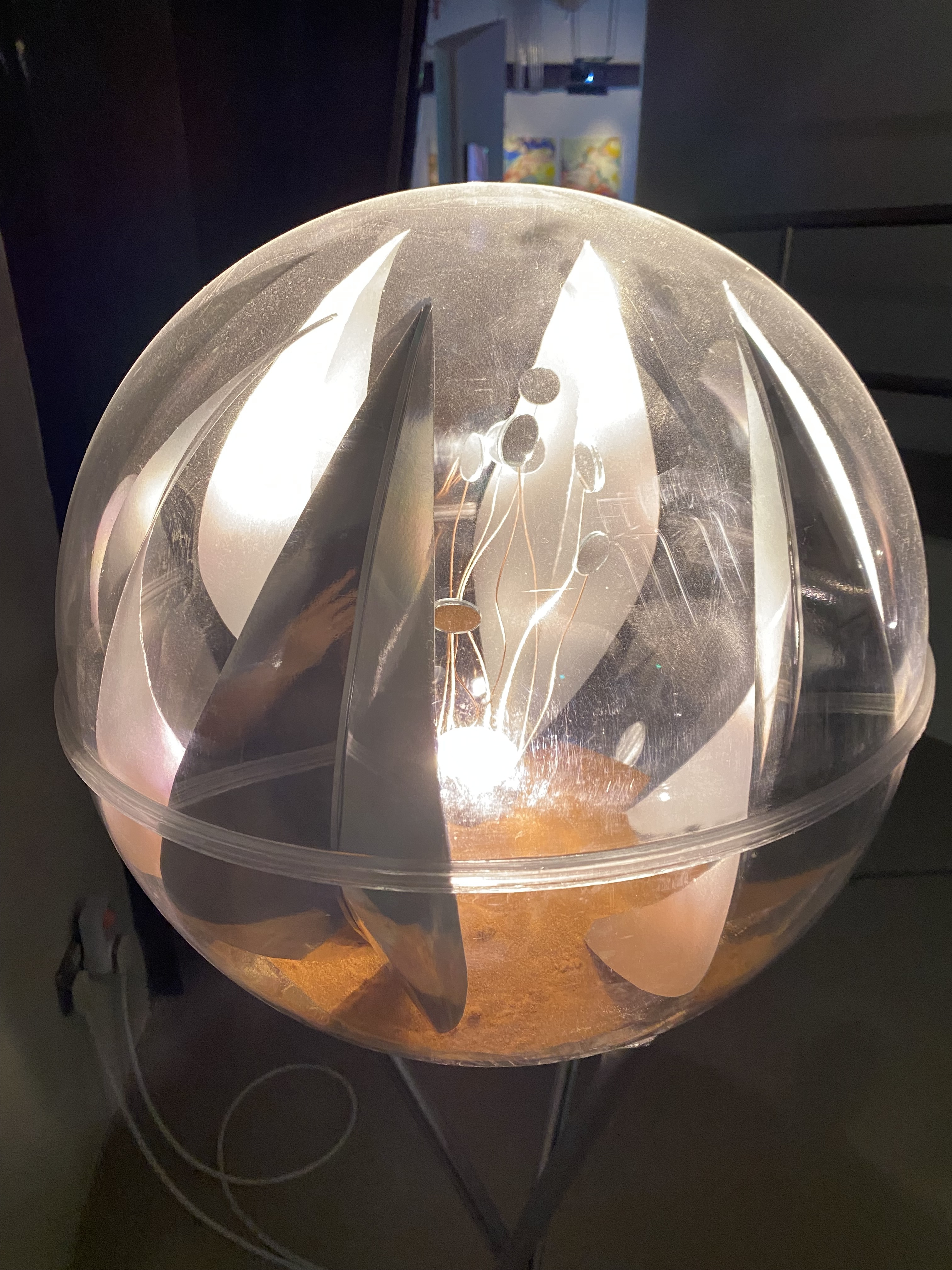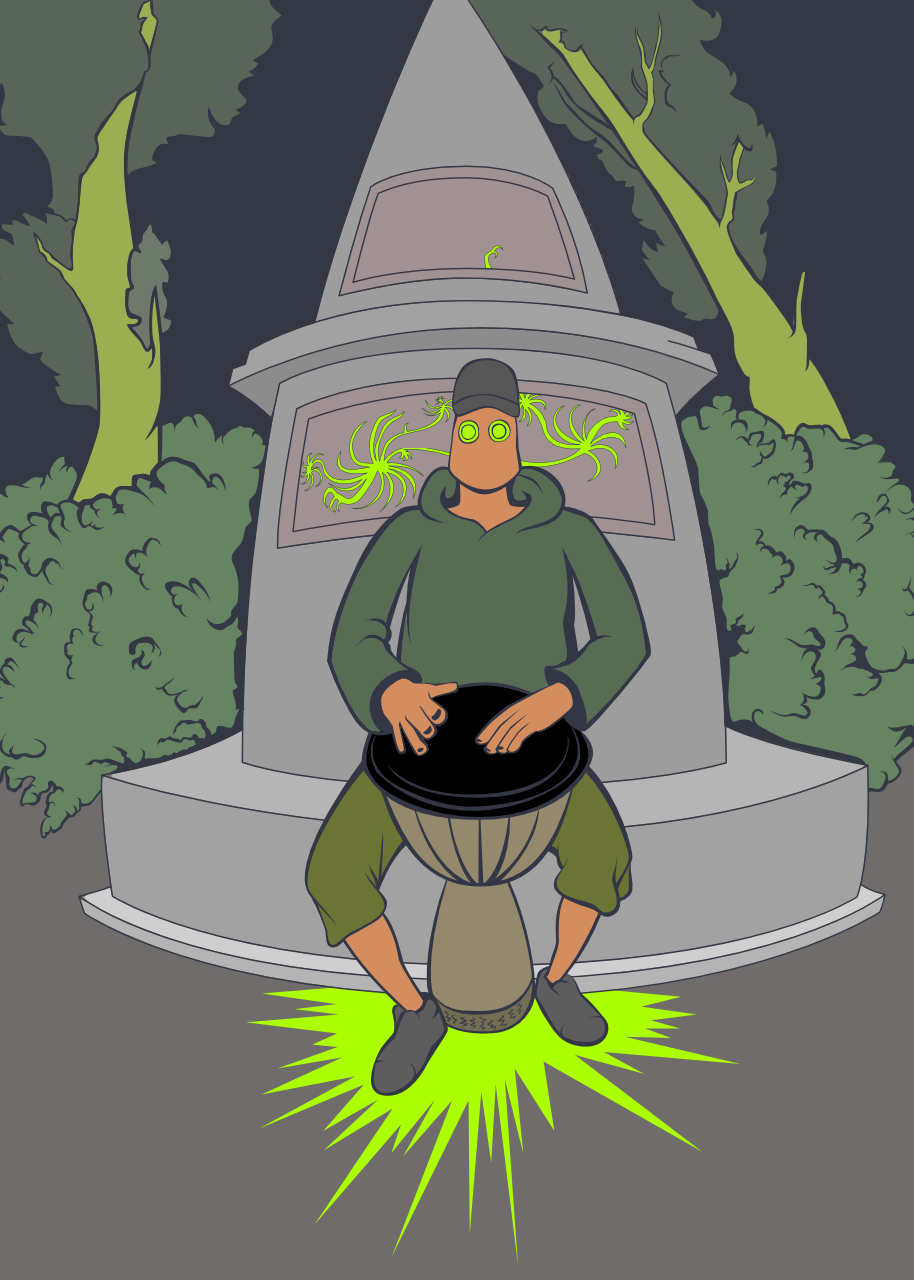Guardian investigation finds almost 7,000 proven cases of cheating – and experts says these are tip of the iceberg
Thousands of university students in the UK have been caught misusing ChatGPT and other artificial intelligence tools in recent years, while traditional forms of plagiarism show a marked decline, a Guardian investigation can reveal.
A survey of academic integrity violations found almost 7,000 proven cases of cheating using AI tools in 2023-24, equivalent to 5.1 for every 1,000 students. That was up from 1.6 cases per 1,000 in 2022-23.
Figures up to May suggest that number will increase again this year to about 7.5 proven cases per 1,000 students – but recorded cases represent only the tip of the iceberg, according to experts.
The data highlights a rapidly evolving challenge for universities: trying to adapt assessment methods to the advent of technologies such as ChatGPT and other AI-powered writing tools.
Maybe we need a new way to approach school. I don’t think I agree with turning education into a competition where the difficulty is curved towards the most competitive creating a system that became so difficult that students need to edge each other out any way they can.
I guess what I don’t understand is what changed? Is everything homework now? When I was in school, even college, a significant percentage of learning was in class work, pop quizzes, and weekly closed book tests. How are these kids using LLMs so much for class if a large portion of the work is still in the classroom? Or is that just not the case anymore? It’s not like ChatGPT can handwrite an essay in pencil or give an in person presentation (yet).
University was always guided self-learning, at least in the UK. The lecturers are not teachers. The provide and explain material, but they’re not there to hand-hold you through it.
University education is very different to what goes on at younger ages. It has to be when a class is 300 rather than 30 people.
WTF? 300? There were barely 350 people in my graduating class of high school and that isn’t a small class for where I am from. The largest class size at my college was maybe 60. No wonder people use LLMs. Like, that’s just called an auditorium at that point, how could you even ask a question? Self-guided isn’t supposed to mean “solo”.
You can ask questions in auditorium classes.
The 300+ student courses typically were high volume courses like intro or freshman courses.
Second year cuts down significantly in class size, but also depends on the subject.
3rd and 4th year courses, in my experience, were 30-50 students
You can ask questions in auditorium classes.
I am going to be honest; I don’t believe you. I genuinely don’t believe that in a class with more people than minutes in the session that a person could legitimately have time to interact with the professor.
The 60 person class I referred to was a required lecture portion freshman science class with a smaller lab portion. That we could ask questions in the lab was the only reason 60 people was okay in the lecture and even then the professor said he felt it was too many people.
That’s fine if you don’t, but you can ask questions.
They even have these clickers that allow the professor to ask “snap questions” with multiple choice answers so they can check understanding
I can’t believe people go into debt for that experience. I would be livid.
Your disbelief is strange.
People occasionally ask questions in lectures. Anything they are confused about gets covered off in tutorials later. Lecturers and tutors both have office hours where further questions are asked.
If a student has learning difficulties or special requirements there is pastoral care available for that.
It’s really not mysterious.
There’d be smaller tutorial sessions. I’d have a once a week 5 on 1 session with my tutor for an hour. Lab sessions might be 30-40 people. Specialist courses would be 100 people.
…but yes, lectures were 300+ people for the core subjects. Generally you and your peers would work together on making sense of it all. You’d find that some people understood some subjects better than others and you’d help each other out.
In the US we went common core. That means the school board decides the courses at the beginning of the year, and they set tests designed to ensure the students are learning. But there are two issues. 1. The students are not being taught. Teachers dont get paid enough to care nor provide learning materials, so they just have yhe students read the textbook and do homework until the test. This means students are not learning critical thinking or the material, they merely memorize this weeks material long enough to pass the test. 2. The tests are poorly designed. As I hinted at with point 1, the tests merely ensure that you have memorized this weeks material. They do not and are not designed to ensure that you actually learn.
These issues are by design, not by accident. Teachers pay rates have stagnated along with the rest of the working class, with the idea being to slowly give the working class less and less propetional buying power and therefore economic control. In addition, edicating your populace runs directly contradictory to what the current reigning faction wants. An educated populace is harder to lie to.
And thats just the ones that were stupid enough to get caught realistically I think this is more like 5% instead of 0.5%
Actually caught, or caught with a “ai detection” software?
Actually caught. That’s why it’s tip of the iceberg, all the cases that were not caught.
The article does not state that. It does, however, mention that AI detection tools were used, and that they failed to detect AI writing 90 something % of the time. It seems extremely likely they used ai detection software.
I’m saying this a someone that has worked for multiple institutions, raised hundreds of conduct cases and has more on the horizon.
The article says proven cases. Which means that the academic conduct case was not just raised but upheld. AI detection may have been used (there is a distinct lack of concencus between institutions on that) but would not be the only piece of evidence. Much like the use of Turnitin for plagiarism detection, it is an indication for further investigation but a case would not be raised based solely on a high tii score.
There are variations in process between institutions and they are changing their processes year on year in direct response to AI cheating. But being upheld would mean that there was direct evidence (prompt left in text), they admitted it in (I didn’t know I wasn’t allowed to, yes but I only, etc) and/or there was a viva and based on discussion with the student it was clear that they did not know the material.
It is worth mentioning that in a viva it is normally abundantly clear if a given student did/didn’t write the material. When it is not clear, then (based on the institutions I have experience with) universities are very cautious and will give the students the benefit of the doubt (hence tip of iceberg).
Surprise motherfuckers. Maybe don’t give grant money to LLM snakeoil fuckers, and maybe don’t allow mass for-profit copyright violations.
In some regard I don’t think it should be considered cheating. Don’t beat me up yet, I’m old and think AI sucks at most things.
AI typically outputs crap. So why does this use of a new and widely available tech get called out differently?
Using Google (in the don’t be evil timeframe) wasn’t cheating when open book was permitted. Using the text book was cheating on a closed book test. In some cases using a calculator was cheating.
Is it cheating if you write a paper completely on your own and use spell check and grammar check within word? What if a grammarly type extension is used? It’s a slippery slope that advances with technology.
I remember testing and assignments that were designed to make it harder to cheat, show your work, for math type approaches. Quizzes and short essays that make demonstration of the subject matter necessary.
Why doesn’t the education environment adapt to this? For writing assignments, maybe they need to be submitted with revision history so the teacher can see it wasn’t all done in one go via an LLM.
The quick answer responses are somewhat like using Wikipedia for a school paper. Don’t site Wikipedia and don’t use the generated text for anything but a base understanding of the topic. Now go use all the sources these provided, to actually do the assignment.
It’s absolutely cheating - it’s plagiarism. It’s no different in that regard than copying a paper found online, or having someone else write the paper for you. It’s also a major self-own - these students have likely one opportunity to better themselves through higher education, and are trashing that opportunity with this shit.
I do agree that institutions need to adapt. Edit history is an interesting idea, though probably easy to work around. Imo, direct teacher-student interfacing would be the most foolproof, but also incredibly taxing on time and effort for teachers. It would necessitate pretty substantial changes to current practices.
I agree. This is a paradigm shift, it won’t get erased out of use.
Repeat after me: it’s NOT FUCKING A FUCKING I when it is LLMs or other machine learning snakeoil.
“Get back in that bottle you stupid genie!”
we’re doomed
We are indeed. Not looking forward to my old age, where doctors, accountants, and engineers cheated their way into being qualified by using a glorified autocorrect.
doctors and engineer is probably much harder to cheat, because you would need to apply the knowlege hands on basis, and you would be found out and washe dout eventually. i can see fields that require alot of writing, oriignally people were hired to write thier prompts or essay pre-lawyer, or whatever but they always get caught down the line.
We live in a world where this building was signed off on and built, and that was before AI, so multiple incompetent people are getting through engineering.
As for incompetent doctors there is now an agency tasked with catching them.
god i love ppl outsourcing their learning to Microsoft
No shit. I’m in postsecondary as an instructor and it is so beyond frustrating . They all use it, they don’t want to read or learn.
None of our institutions encourage “learning”; they are built to encourage “making the grade”. Why they need the grade and what it represents is irrelevant to students. It’s just a barrier that society has placed in front of them.
There needs to be something done about how we, as a society, approach education because whatever we are doing ain’t working. It apparently only worked at a very surface level and that was only because A.I. wasn’t available yet to be an easy out.
Oh man the BBC is surely already preparing for Adolescence: rise of the robots
Three magic words - “Open Note Exam”
Students prep their own notes (usually limited to “X pages”), take them into the exam, gets to use them for answering questions.
Tests application and understanding over recall. If students AI their notes, they will be useless.
Been running my exams as open note for 3 years now - so far so good. Students are happy, I don’t have to worry about cheating, and the university remains permanently angry because they want everything to be coursework so everyone gets an AI A ^_^
Exmatriculation that should be
Should be expelled and banned for life.
At least expelled. But this is sooo damn hard to enforce. I mean, my perspective is from germany, but we also deal with plagiarism by ChatGPT&Co sometimes, especially in Bachelors or Master Theses. I never saw a student in expelled for any form of plagiarism in my three years at the university. Worst case was always that he or she failed the thesis or course, because the university is so damn afraid of any lawsuit that maybe could occur.
The output is often really good, even for STEM questions about niche topics.
Not always. I teach a module where my lectures are fully coursework assessed and my god, a lot of the submissions are clearly AI. It’s super hard to prove though and I just mark the same as any other, but half-halluvinated school-grade garbage scores pretty damn low.
(edit: this is because we are trained on how to write questions AI struggles with. It makes writing exams harder, but it is possible. AI is terrible at chemistry. My personal favourite being when Google AI told me the melting point of pyrrole was about -2000C, so colder than absolute zero)
Of course it is only a tool, the same way an untrained person can not operate an excavator without causing lots of damage. I just wanted to say how impressed I often am at how good the response is.
Bold move voicing such an opinion on Lemmy! (I agree with you, and you are also objectively correct. There are also many things it is terrible at, but if one knows what one is doing, that really doesn’t detract from the quality stuff)
Not from UK and also not a student, but imo this is more a school problem than the students. The teachers just do not understand how to cope with AI. With open note exam and traditional exam style questions, I would be an idiot if I do use AI.
professors were already on the bordering of using AI, when before they just use software to look at your essay and any cheating it might detect.











